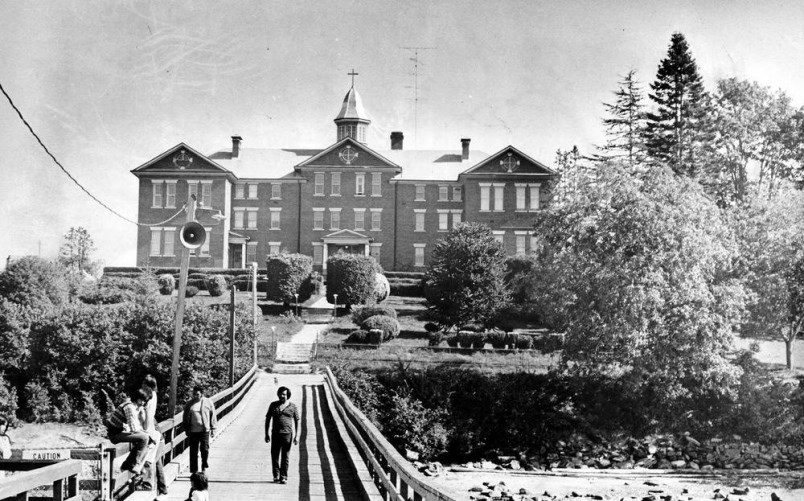About 160 undocumented and unmarked graves have been found on the foreshore and on land once home to the Kuper Island residential school, representatives of the Penelakut Tribe said a statement.
“We understand that many of our brothers and sisters from our neighbouring communities attended the Kuper Island Industrial School,” Chief Joan Brown, elders and other officials said in a statement. Kuper Island was once the name of what is now known as Penelakut Island, east of Chemainus.
“We also recognize with a tremendous amount of grief and loss, that too many did not return home. It is impossible to get over acts of genocide and human rights violations.”
Healing is an ongoing process, said the statement. “Sometimes it goes well, and sometimes we lose more people because the burden is too great.”
The statement said a March for the Children is taking place on Aug. 2, starting at 9 a.m. at the Salish Sea Market in Chemainus.
Healing sessions will be held on July 28 and Aug. 4.
“Non-Indigenous allies are welcome to attend to witness our truths. We know healing can’t happen in one day.”
The Kuper Island school opened in 1889 and was run by the Catholic Church.
Two sisters drowned while trying to escape in 1959 and another student died by suicide in 1966. The federal government took over administration in 1969 and shut the school down in 1975. Twenty years later a former employee admitted to three charges of indecent assault and gross indecency.
It was not clear in the statement how or when what are believed to be grave sites were found on Penelakut Island.
The National Centre for Truth and Reconciliation at the University of Manitoba has records of 202 deaths of students at residential schools on Vancouver Island, including many from the Kuper Island school. First Nations survivors and researchers say greater numbers of children died as a result of neglect, tuberculosis and meningitis, fires and injuries from beatings and rapes, and those deaths were never recorded.
Penelakut Tribe member Steve Sxwithul’txw said Monday that he is only speaking for himself not the tribe. “As a survivor and somebody who has attended the former Kuper Island residential school of course I was upset.”
He is not surprised by the announcement, saying that when similar findings came out at the Kamloops residential school, he figured “It would be pretty much the same” at other school sites.
“For myself and my family, it is always upsetting when we hear [of] our lost loved ones that didn’t come home from this institution and this is very tragic and sad,” Sxwithul’txw said.
The Tk’emlúps te Secwépemc First Nation used ground-penetrating radar survey to find what it estimates as 215 unmarked graves at the former Kamloops Indian Residential School.
Sxwithul’twx organized an online fundraiser, which has collected nearly $151,000 to purchase ground-penetrating radar equipment to continue the work of finding unmarked graves. The Penelakut Tribe’s work did not involve that fund, he said.
The National Indian Residential School Crisis Line is available 24 hours a day at 1-866-925-4419 to help survivors of residential schools.



